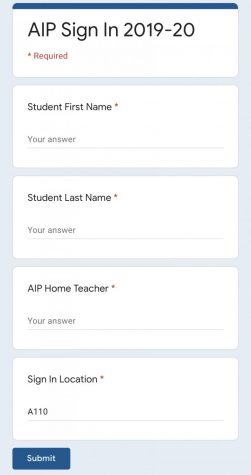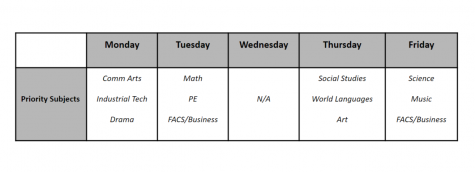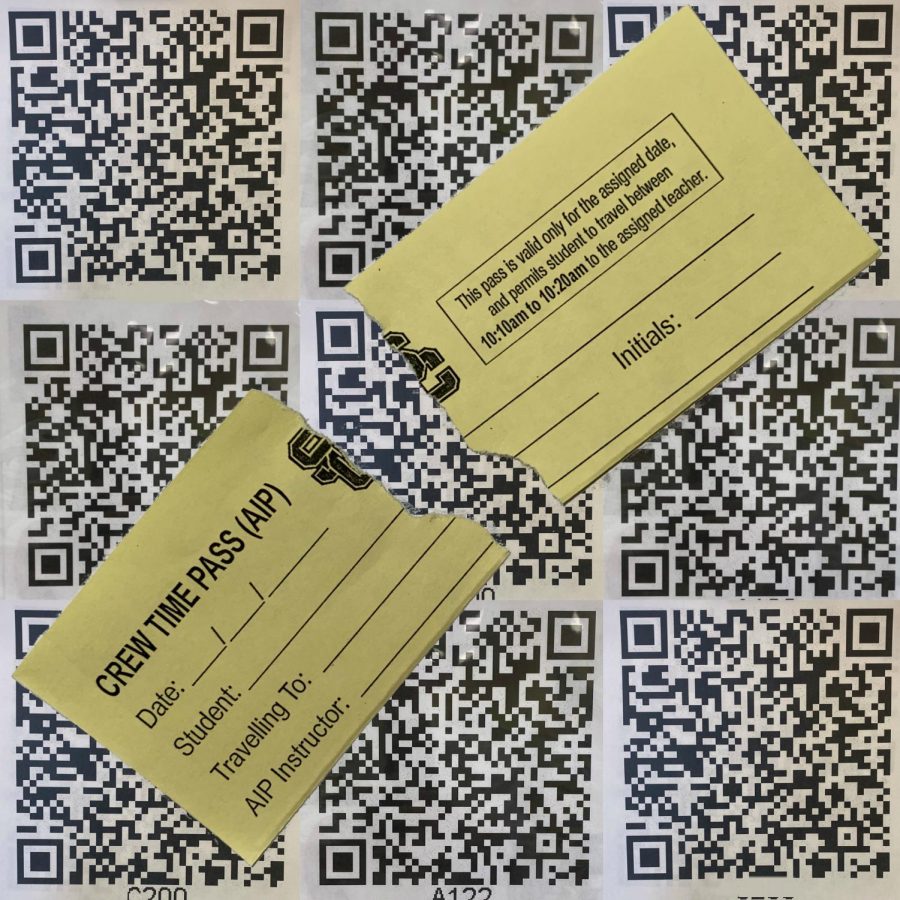Out With The Old
SCHS switches from the paper passes of AIP to a fully-digital interface
Gone is the pen and paper AIP system as of the beginning of this second semester. Instead, the passes have been replaced with a fully-digital, ever-changing master spreadsheet where teachers request mandatory placements either because of student choice, a cause of concern, or to make up missed work. Students can log in and out of different AIP rooms through laminated QR codes placed on the wall of every single room in the building, leading them to a Google sign-in form.  The benefits of the digital interface mean more staff awareness of where exactly students are, and the student’s ability to go to multiple AIP’s in one period. The reactions, however, are in a decidedly-wide range. Joseph Head, from the math department, has mixed feelings about the new system.
The benefits of the digital interface mean more staff awareness of where exactly students are, and the student’s ability to go to multiple AIP’s in one period. The reactions, however, are in a decidedly-wide range. Joseph Head, from the math department, has mixed feelings about the new system.
“I’ve always kept really detailed records for AIP,” Head said, “so students not showing up was never a problem for me. In that respect, I haven’t seen any change. Overall, I don’t think it has increased or decreased student involvement or desire to come to AIP. I still mostly go off of student requests, rather than forcing students to come, so I am seeing just about the same results with the new AIP system that I did with the old. And, since I just have to have my own record for me, I still keep track on paper as well, so really, I could take or leave the new system. It hasn’t really changed anything for me.”
Some teachers have noticed little response, not from record-keeping, but because of non-digital methods and the non-occurrence of requests for her specific students.
“For me, it’s harder,” Special Education Teacher Martha Flentge said, “because I’m an analog. Finding this information can be difficult. I don’t see any positive changes in my AIP because many students aren’t requested out. I don’t see this as a better solution than what we were doing, maybe more accountable as far as students go. I’d like to see the data on this.”
On the other hand, Señora Laura Reese and Señor Edgar Montenegro from the foreign language department, find it overall easier to use.
“At first, I thought it was going to be a lot more work on the teachers,” Señora Reese said, “but it’s been easy and effective.
“The change made my teachings easier,” Señor Montenegro said.
Meanwhile, Rodney Orrick and Kimberly Timmons from the science department also view the decision favorably.
“More students are getting to where they need to be,” Orrick said, “and that means more interventions.”
“It’s been positive for the student’s grades,” Timmons said, “they do show up.”
The consensus of the implementation is that it’s more efficient on the behalf of students and teachers, eliminating the waste of both paper and time filling out passes, which have been rendered void since the new semester.
“What is nice about the new system,” Head said, “is students can email me and I can put them in the form. That saves them a trip up to get a pass which always took a lot of time at the start of each day.”
To combat useless AIP meetings, the new system also added a stipulation wherein specific days would be regimented to certain subjects , so if you’re requested by your teacher in that subject, then all other requests are either displaced or, if the student has time, ventured to afterward. This has been the main point of criticism for the students, who seem to have a decidedly negative response.
, so if you’re requested by your teacher in that subject, then all other requests are either displaced or, if the student has time, ventured to afterward. This has been the main point of criticism for the students, who seem to have a decidedly negative response.
“I hate it.” junior Whitney Newtown said, “It bothers me. I think it’s too much effort, and I hate that teachers are able to not request you, even if I believe I need to come in.”
“You’re forced to go somewhere even if you have something else that’s more important for you to do.” junior Ashley Kath said.
“It’s annoying,” Ellie Page said, “even if it makes people more productive.”



